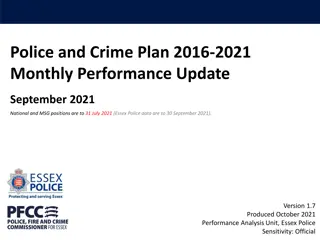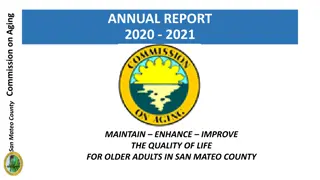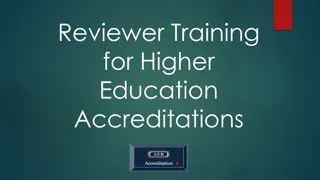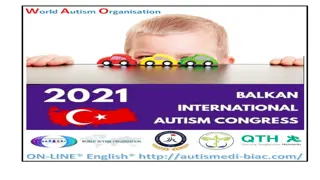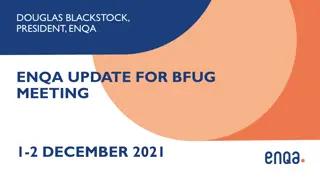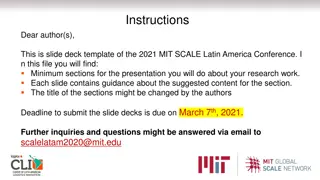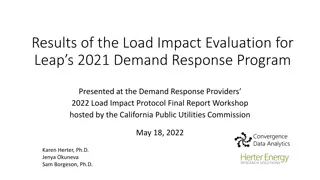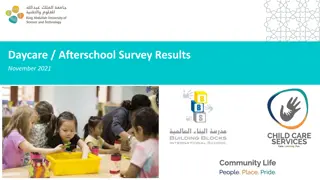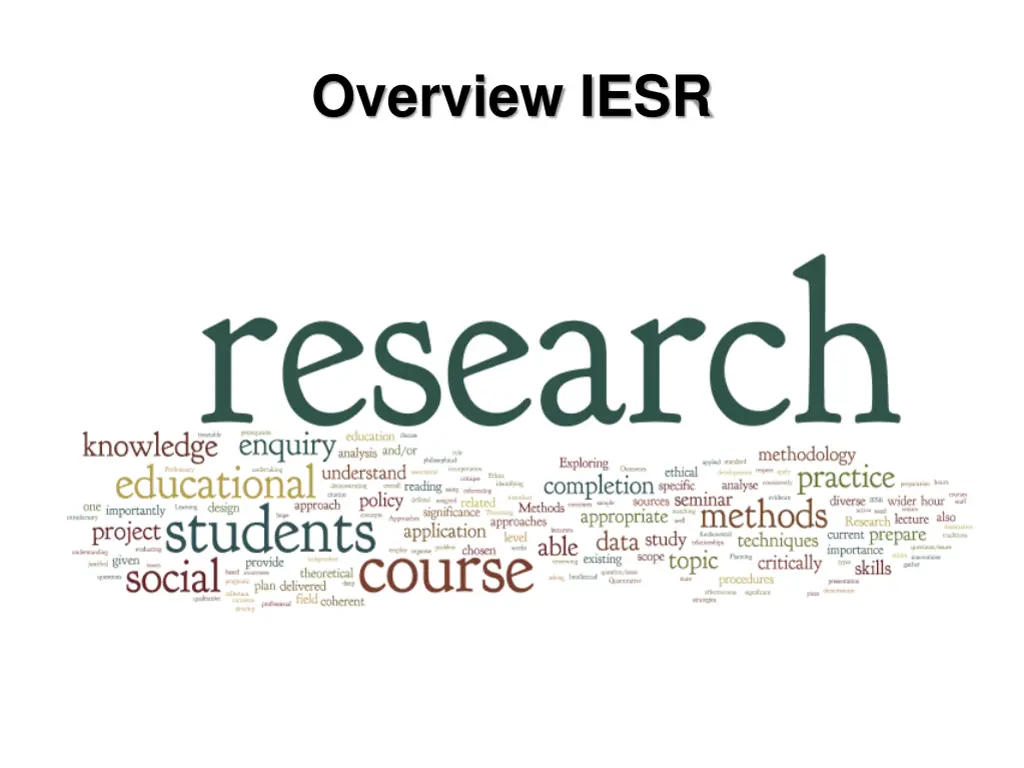
Advanced Educational Research Strategies and Methods
Dive into the world of educational research with this comprehensive course covering quantitative and qualitative approaches, data collection, analysis techniques, and ethical considerations. Learn to plan and execute research projects effectively while exploring various methodologies to enhance your educational research skills.
Download Presentation

Please find below an Image/Link to download the presentation.
The content on the website is provided AS IS for your information and personal use only. It may not be sold, licensed, or shared on other websites without obtaining consent from the author. If you encounter any issues during the download, it is possible that the publisher has removed the file from their server.
You are allowed to download the files provided on this website for personal or commercial use, subject to the condition that they are used lawfully. All files are the property of their respective owners.
The content on the website is provided AS IS for your information and personal use only. It may not be sold, licensed, or shared on other websites without obtaining consent from the author.
E N D
Presentation Transcript
education research Approaches to Quantitative data in educational and social research: Preliminary analysis and sources of different types of data research project Planning an education Research Strategies Working with sample data collection Method of data Exploring association and thinking about causality in applied research Issues of ethics and reflexivity On doing Ethnography: Research Ethics Theorising research case study methodology Exploring qualitative
Advanced Educational Research (Quantitative) IESR to AER AER will build on IESR quantitative course and follow similar lecture/activity/workshop approach Topics will include: Identifying research aims and devising appropriate research questions Collecting quantitative data and questionnaire design Descriptive and inferential statistics
Advanced Educational Research (quantitative) Topics will include (contd.) Secondary data sources Reporting findings Quantitative Workshop will focus on identifying and using relevant statistical procedures and analysis; and, interpreting and presenting findings.
AER Qualitative Qualitative primary data collection methods and approaches Secondary Qualitative data sources and access Qualitative data analysis methods and approaches Qualitative workshop practical session on analysis, interpretation and presentation
AER structure Sessions Friday 10:00 12:00 General structure: Lecture/presentation short break seminar group session Assessments Assignment One: Qualitative analysis and interpretation Assignment Two: Quantitative analysis and interpretation Both assignments are due on ?
Qual sessions 1 and 2 Collecting data Analysing data Interviews as research tool - Techniques of qualitative data analysis: codes, categories, concepts - Alternatives in QDA: thematic analysis template analysis; narrative analysis Focus groups Participatory observation Mixed-methods Other methods diaries, photos, etc.
Quants sessions 1 and 2 Collecting quantitative data Analysing quantitative data How to collect quantitative data surveys, Analysing data using SPSS exploring data using descriptive stats questionnaires, presenting initial data: frequencies and Measures of Central Tendency, correlations, crosstabs and chi-square scales and coding Survey and question design - Tests of difference: t-tests and ANOVA
Qualitative session 3 and 4 Accessing/Using Secondary Qualitative data Analysing and presenting Secondary Qualitative data UK Data Archive; Practical using transcripts and interview schedules for coding and memo-ing Timsecapes + other international sources
Quantitative session 3 and 4 Accessing/Using Secondary Quantitative data Analysing and presenting Secondary Quantitative data What form and type of secondary data are available and where and how do we get access. Analysing data descriptives, frequencies, correlations, crosstabulation and chi-square; T-tests, and ANOVA
General Moodle Resources Tasks/activities web-site and important paper reviews Forums participation Workload Expectations how many hours a week Requirements
Course Expectations Fundamental to the course is your commitment to reading before and after each week s session, and during the reading weeks, in order that you prepare yourself thoroughly for the work, particularly if research methods are new to you. We will help you by recommending reading from chapters, papers and reports for each topic we cover. Reading and reading links as well as other useful materials will be available for you on the virtual learning environment (Moodle) site for the course. The expectations of this course are that for every 2 hours of teaching you will study at least an additional 18 hours reading and working on your own or with other members of the courses. You should not rely only on the reading we set or recommend but also search out your own using the books and journals in the library as well as the library s electronic access to journals and e-books.
Muir Houston Early research on Victorian Glasgow census records and historical research Doctoral thesis a mixed methods study of student retention, progression and performance linked to general interests in access and widening participation, non-traditional and adult students. How social and organisational factors influence the student experience mixed methods funded by ESRC 15 case studies Adult learning, higher education and the labour market; work-based learning in higher education funded by the EU
The role of networks and collaboration in Learning Cities and Regions funded by the EU Experience in questionnaire design Motivation to learn and its influence on school performance and career expectations (NHS and SFC) Interviews and interview design Focus groups Qualitative and Quantitative analysis Aspirations and career expectations funded by the JRF Case study research Applicants to medical schools Mixed methods approaches University Engagement in Africa and Asia funded by British Council
Christina Soderberg Early research on cognitive desensitisation to emotive stimuli over time, using EEG. Doctoral thesis on the role of depth of field in influencing visual attention and perception in media with quantitative methods, including eye-tracking. Quantitative and qualitative research as well as impact evaluations with the London Mayor s Office and the Cabinet Office.
(Elin) Rui He Early research on cross-cultural psychology and international education, using creative qualitative research techniques (e.g. metaphors, vignettes). Doctoral thesis a qualitative investigation on the developmental perspective in Chinese and British language learners acculturation experiences during Study Abroad Programmes. Qualitative and mix methods approaches (interviews, questionnaires, audio diaries, drawing metaphors, autoethnographic design); qualitative analysis (Thematic Analysis, Interpretative Phenomenological Analysis).
Group tasks Introductions Who are you, what do you do, why are you here, and where do you want go? Do you have any previous experience in relation to research methods? see attached hand-out Mapping out your research design formative task on coherent research design



